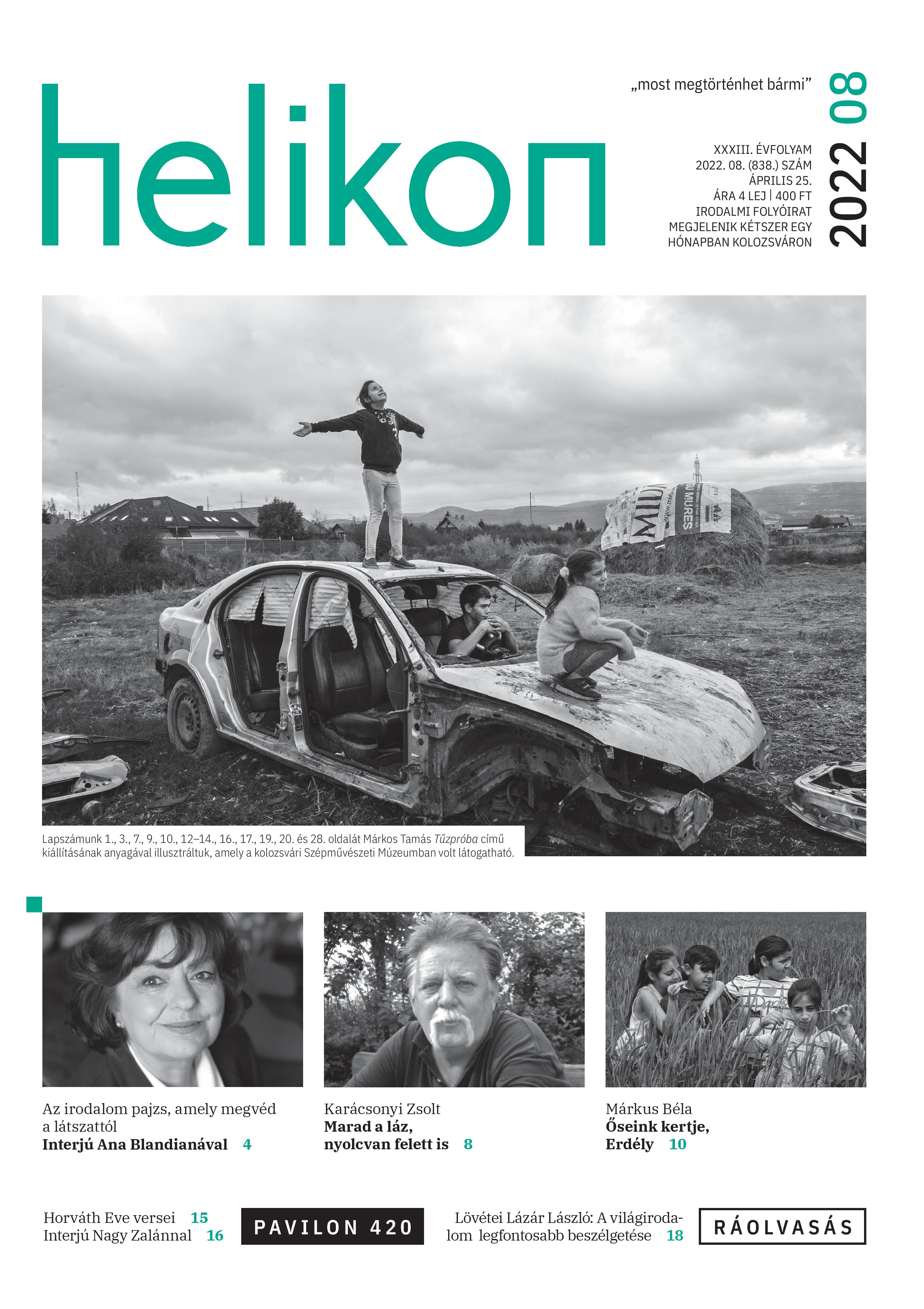
We kindly inform you that, as long as the subject affiliation of our 300.000+ articles is in progress, you might get unsufficient or no results on your third level or second level search. In this case, please broaden your search criteria.

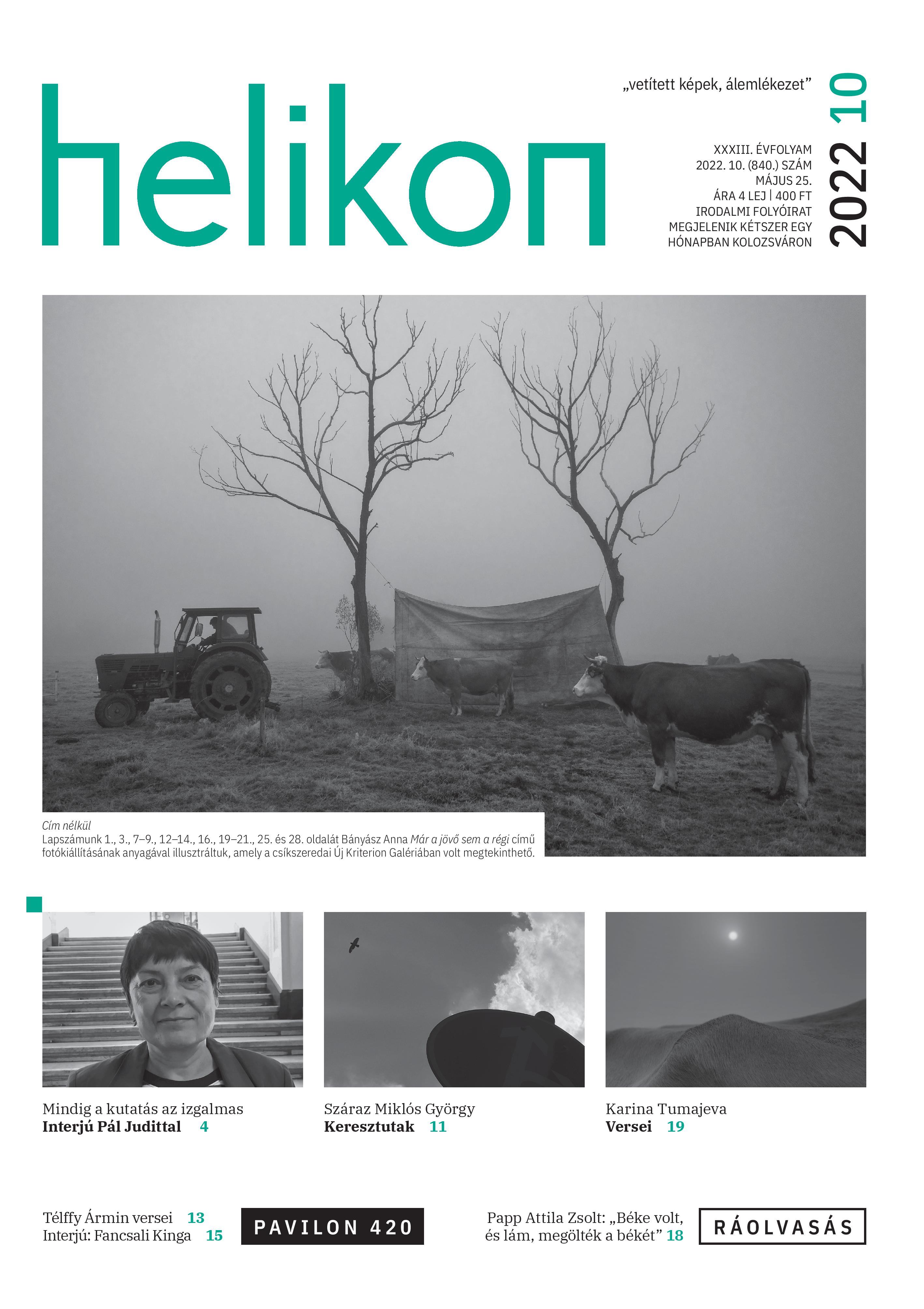
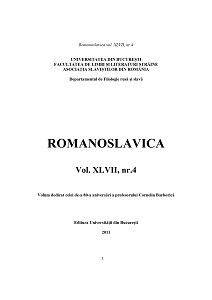
The theme of returning in Zoltán Bárkányi Valkán's prose. Zoltán Bárkányi Valkán is one of the emblematic representatives of the Hungarian Slovak literature. In his short epic writings the theme of leaving is a constant element. The returning can only be examined in relation with „leaving”, departing from something important. Leaving the parental house and integration in a new environment wears out the spirit of B. Valkán's characters, and creates generational conflicts. The essay examines the role and place of national traditions in our globalizing world, by contrasting home, the individual and the whole world.
More...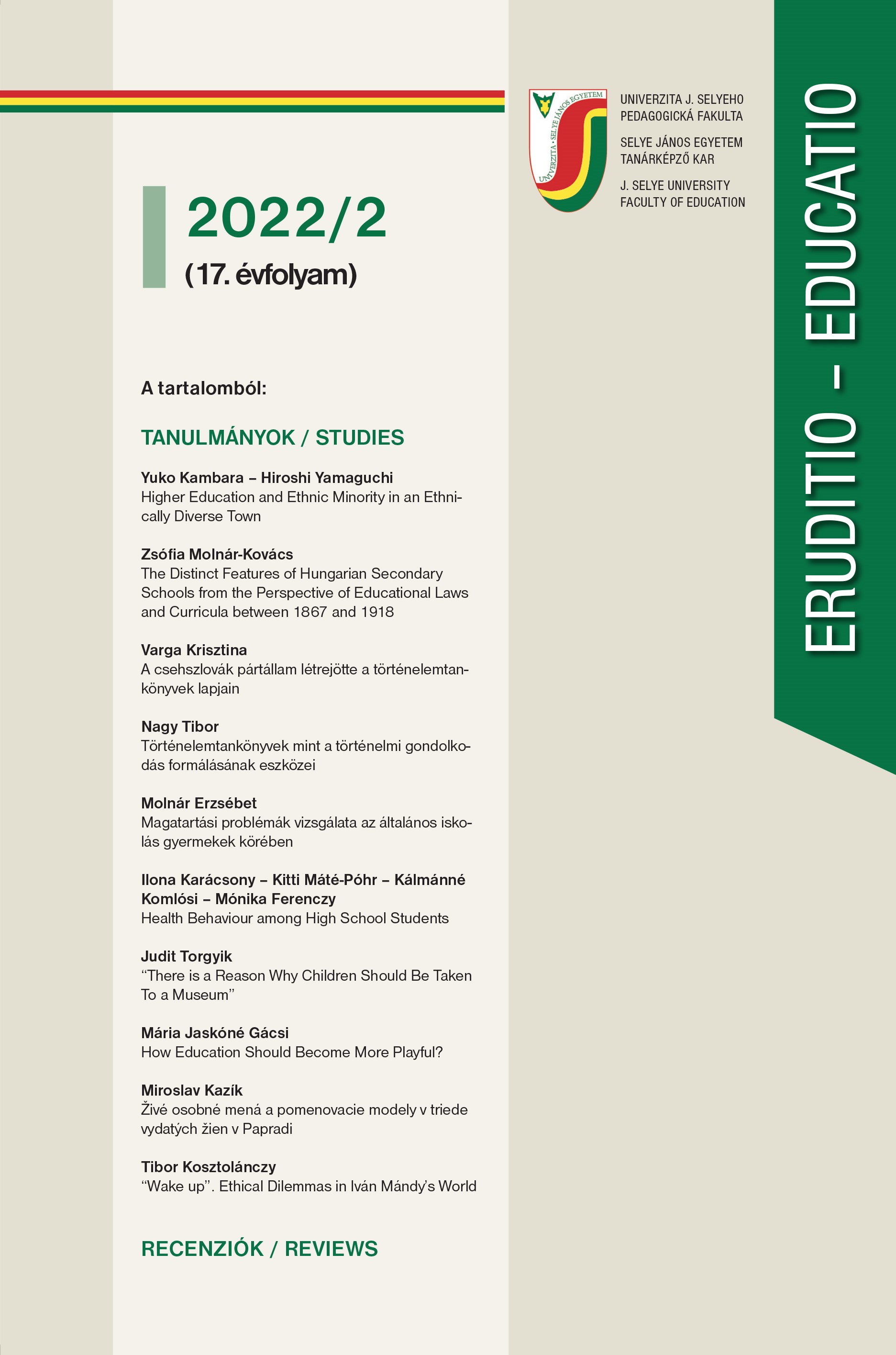
Iván Mándy is often characterized as an observer of unsolvable situations and hopeless human destinies. This paper attempts to demonstrate that Mándy wrote a series of short stories that conveyed a sharper message. In his more active world, the conflicts between the protagonists resulted in open, dramatic confrontations. Ethical dilemmas surrounded these often aggressive actions and finding an effective solution was urged by the confusing circumstances. Surviving, supporting a family, or keeping a job was at stake in these stories. Mándy primarily focused on young people, who were at the beginning of a long learning process of acquiring the skills to survive in a world where ethics and law contradict each other.
More...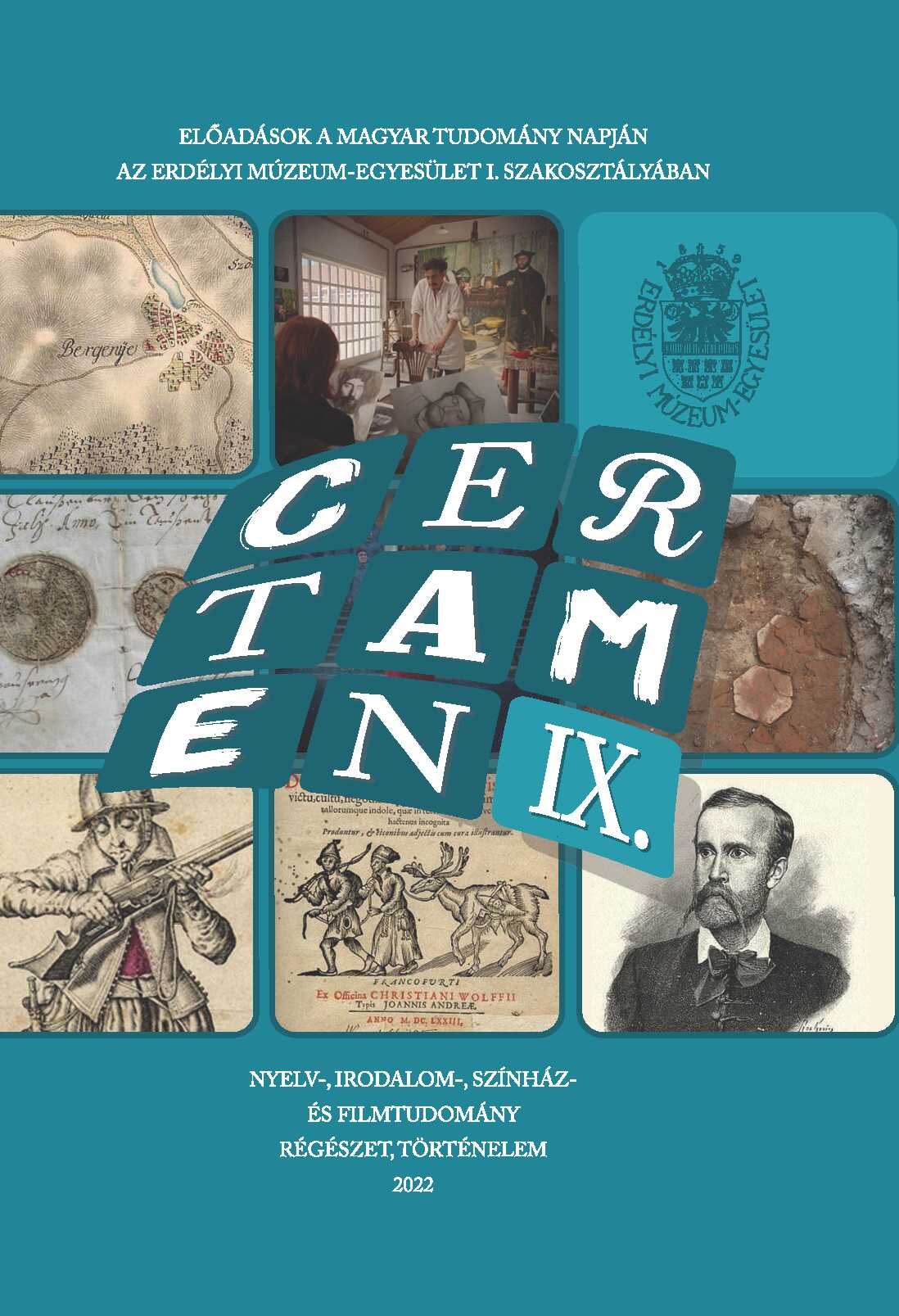
Since his debut, Tibor Bálint has had a major influence on the development of press and publicity in Romania. While being an author and editor of various periodicals (such as Előre, Ifjúmunkás, Falvak Dolgozó Népe, or the children’s literature magazine Napsugár), Bálint regularly wrote for other literary journals (Utunk, Igaz Szó, Korunk, and A Hét). These publications outline an oeuvre that is less visible today. But will I learn the reason why Tibor Bálint, along with his contemporaries, was forced to meet certain expectations of ideological criticism, or, more importantly: how did the authors themselves view their work? The significance of the latter is debatable, nonetheless, it is unavoidable in order to understand how publicity was perceived that time and the context in which Bálint’s early works were born. Certainly, reading the former critical reception or some of Bálint’s non-literary publications, one may have a grip on how he (may have) viewed Communism, the working class and ideological literature. However, this requires a complex reading which inherently presumes certain interpretative speculations. To some degree, I have found answers to my questions in one of István Szilágyi’s publications. His depiction of the era could bring one closer to the understanding of Bálint’s early works.
More...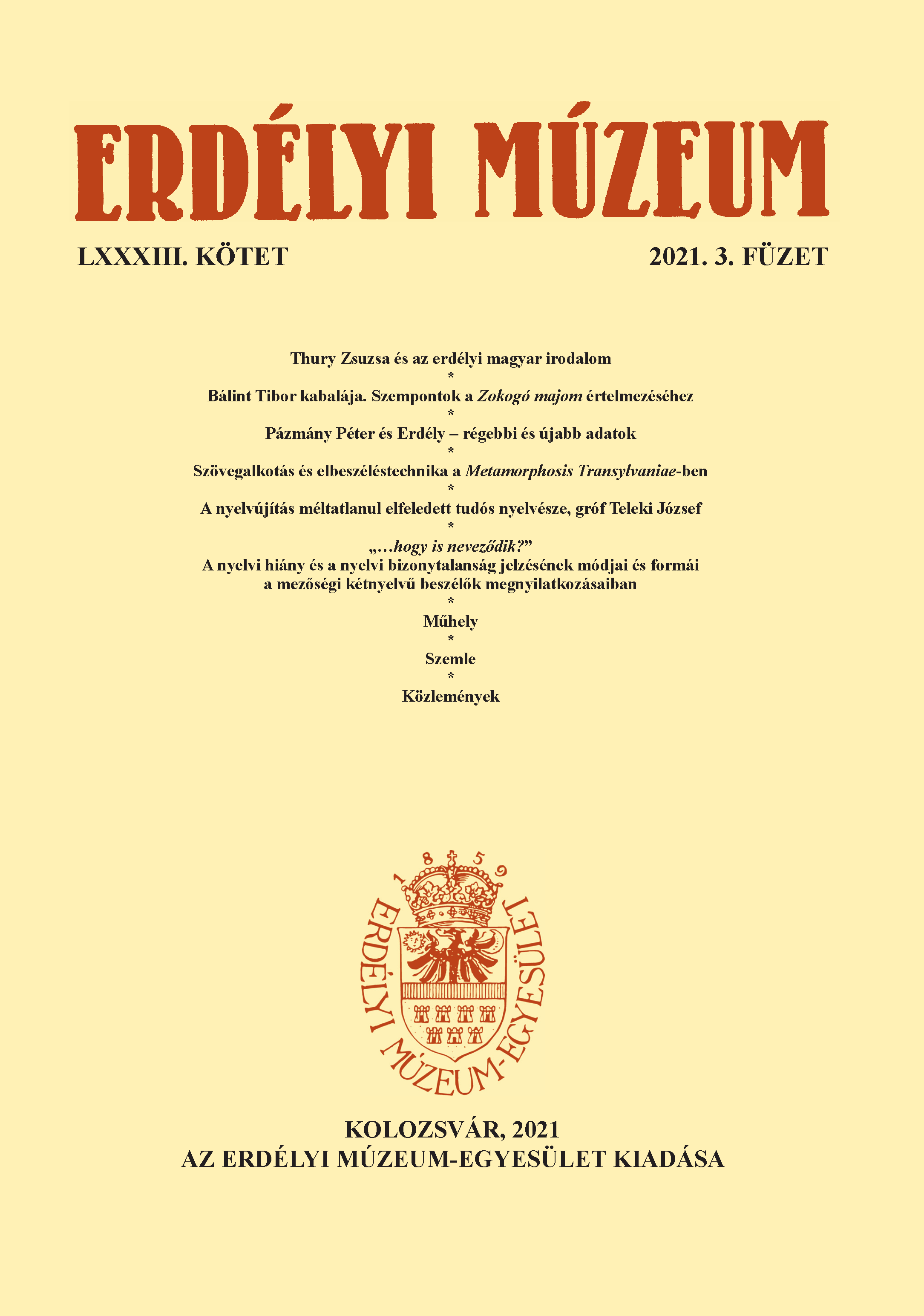
The article discusses the aspects that connect the Budapest-born Zsuzsa Thury (1901‒1989) to the field of Transylvanian Hungarian literature, looking at how her work can be included into the history and corpus of this regional literature, offering details also about her status as a woman writer in the 1930s. The analysis identifies five main connecting points: the literary heritage of her father, Zoltán Thury, the role of the Transylvanian female journalist, the inclusion into the generational dynamics of Transylvanian literature, the connections to the central institutions of the Helikon writers, and finally the aspects of a textualized private life.
More...
The objective of this work is to examine Péter Apor’s Metamorphosis Transylvaniae from a literary point of view. The author utilized Mihály Cserei’s comments several times to complete his own work. These more or less substantially modified excerpts merged into the new composition without any fractures. However, the relation between Apor’s text and Cserei’s notes has not been analysed, yet. Therefore, I initially present a brief review of Apor’s transforming methods. Then, the second part of the paper discusses the structure and narrative mode of the work, the roles of the paratexts in the construction of meaning, the tools of the cohesion in the text, and the anecdotic elements. Ultimately, I make a few remarks on the meaning of „náj módi” (neu Mode/new mode) within the work.
More...
Count Teleki, with multiple Transylvanian relations, had a special role as a linguist in the history of the renewal of the Hungarian language. He was the promoter and first elected president of the Hungarian Academy of Sciences, founded in 1825, until his death. Between 1842-1848 he was also the Governor of Transylvania. In his first linguistic work he thoroughly evaluated at a high theoretical level - and thus concluded - the controversies related to language reform, and in the second he described how the Hungarian language dictionary should be the most important tool in the continuous formation of the language. As a Governor of Transylvania, he had the historic task of proclaiming the law on the liberation of serfs in Cluj on 18 June 1848. In Transylvania, without a doubt, this was the most important conquest of the revolution of 1848, common to both Hungarians and Romanians, a conquest which, in general, is not referred to on the occasion of commemorative festivities.
More...
The treaties of Paris and the political changes brought by them marked a special state of in-betweenness for those citizens who entered under new political rule. While their homeland as a physical space continued to represent a safe, well-known place, its context changed, and the change asked for new interpretations. The „domestification” of this space required the negotiation of new sets of values, and new identities. My research presents the way the communicative memory describes the political changes brought by the year 1920 in a set of Transylvanian-Hungarian novels written in the inter-war period. The focus of the research is on the life-strategies, conflicts and decisions presented through the protagonists, and the way these are reflected in the spatial practices presented in the novels.
More...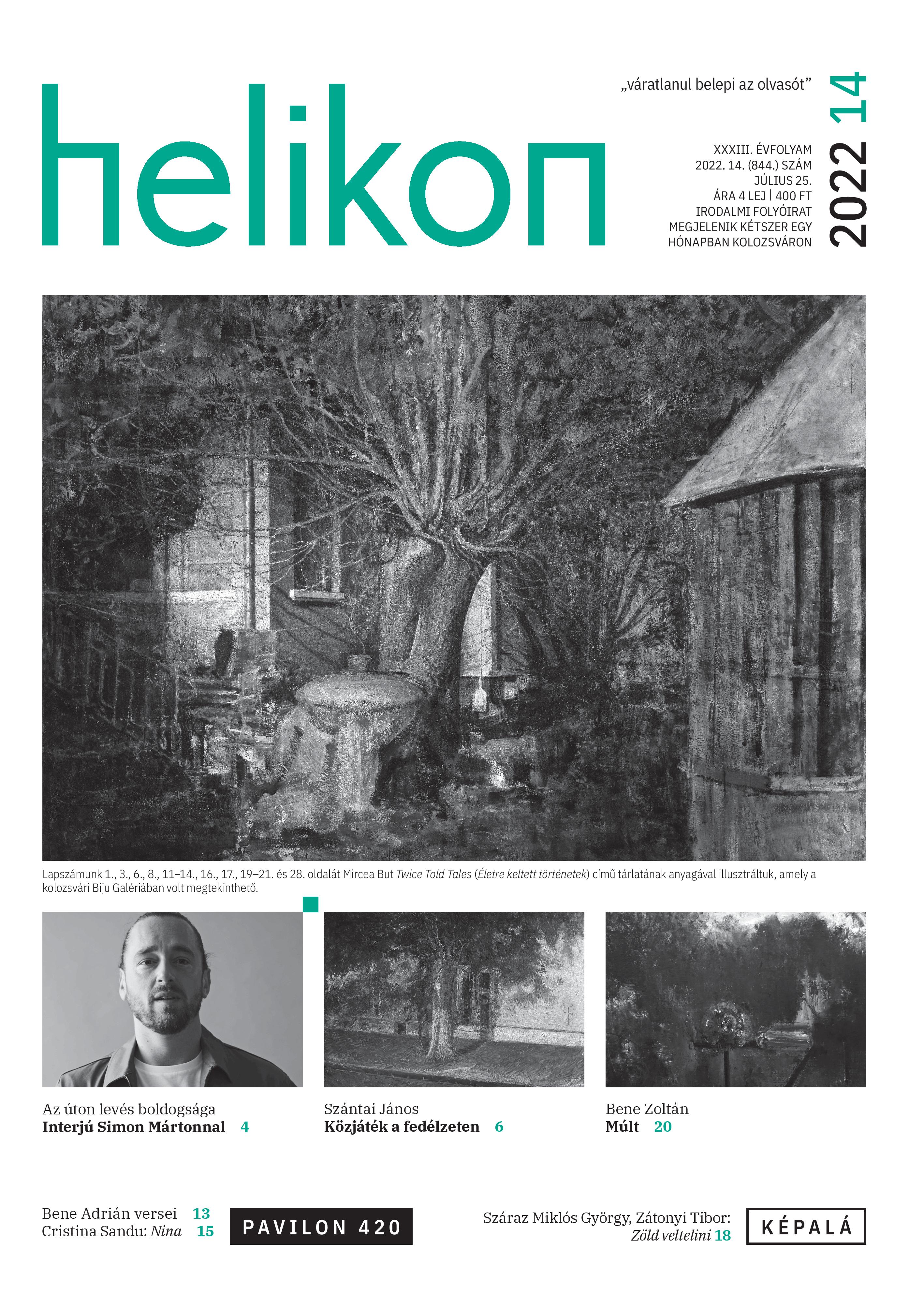
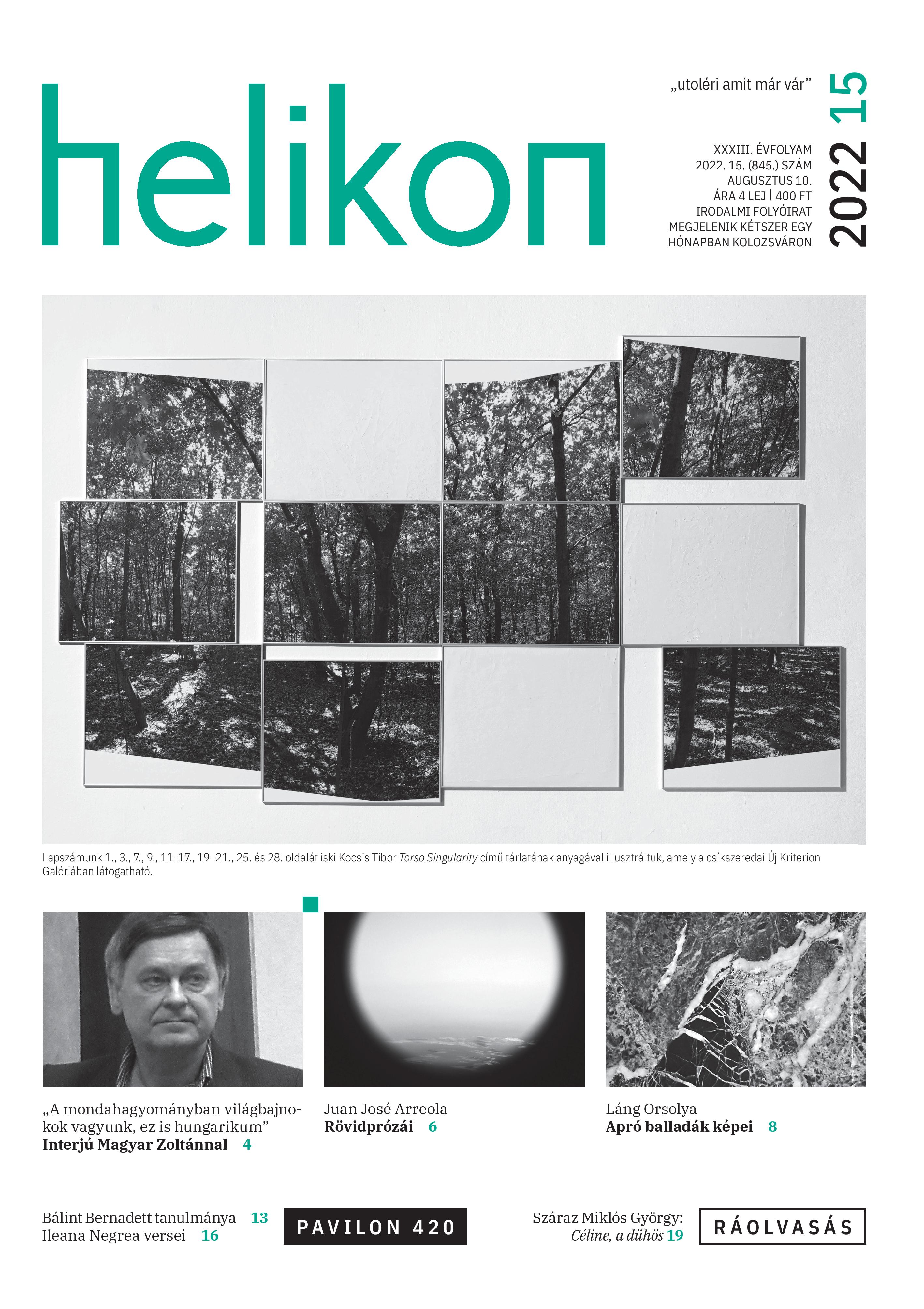
Interview With Writer and Folklorist Zoltán Magyar
More...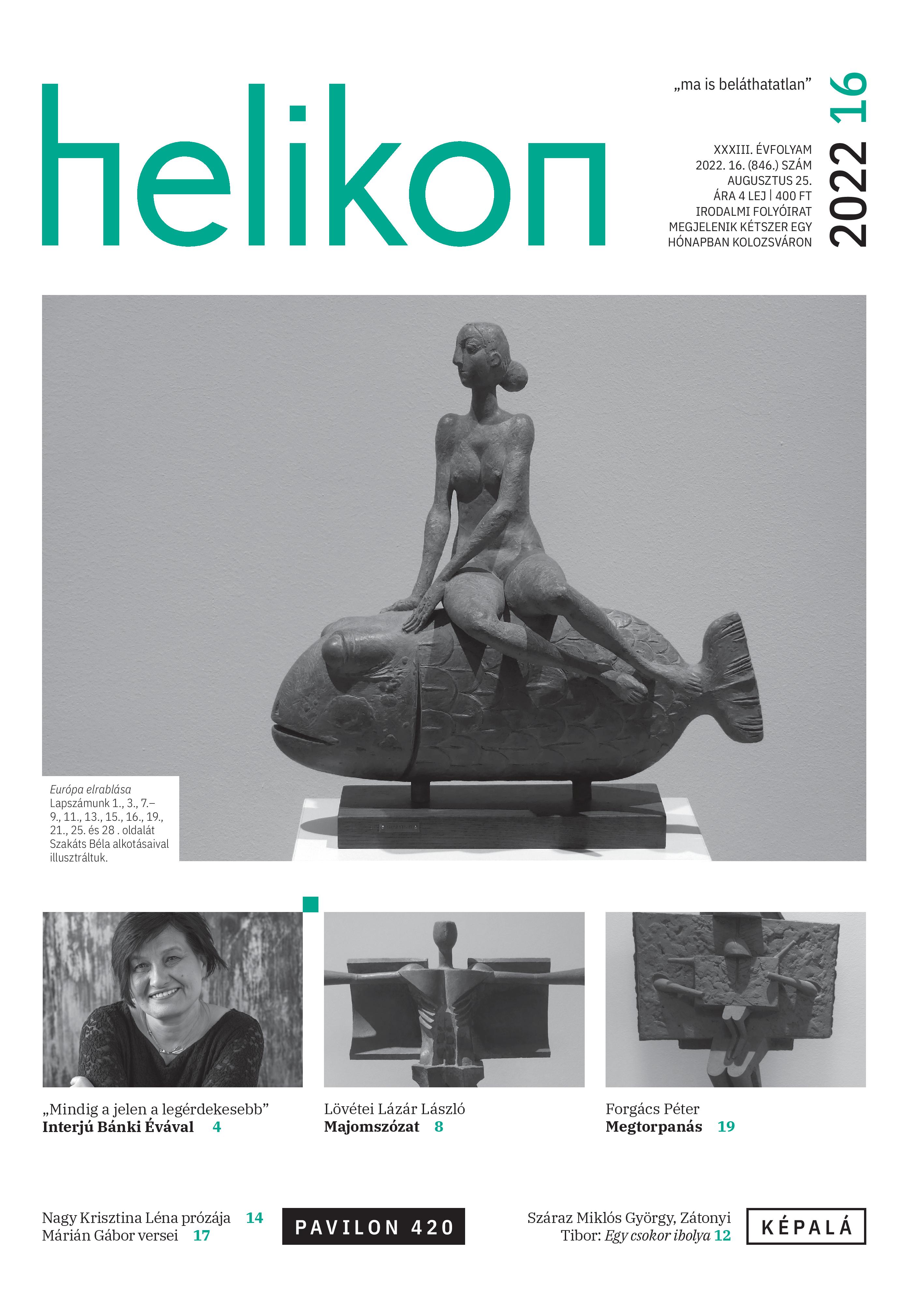
A literary text written by Wirth Imre.
More...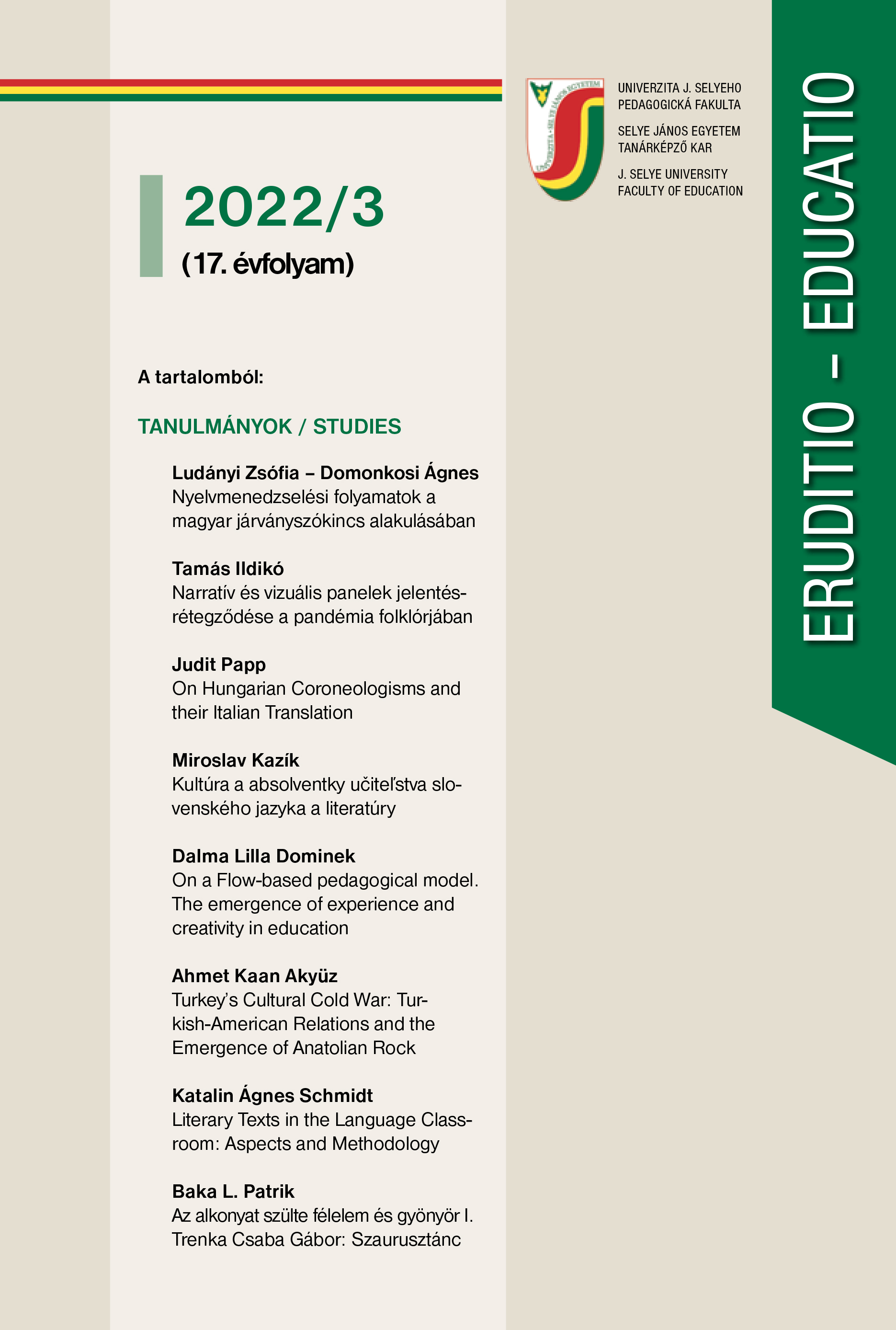
It puts great emphasis on the found manuscripts and – with it – on the phenomenon of crossing borders, on the features and crosstalk, on the meeting place of the novel’s stories, that is, on the chronotopos of the bar, and on the key symbols of the work as well. During detailing the poetics of the novel, the paper interprets the self-reflections in the same way as the text and inter-creation solutions as well as the classically Trenkian lyrical prose-language. The study, due to its size, will be divided into two parts – the continuation will be available in the next issue of this journal.
More...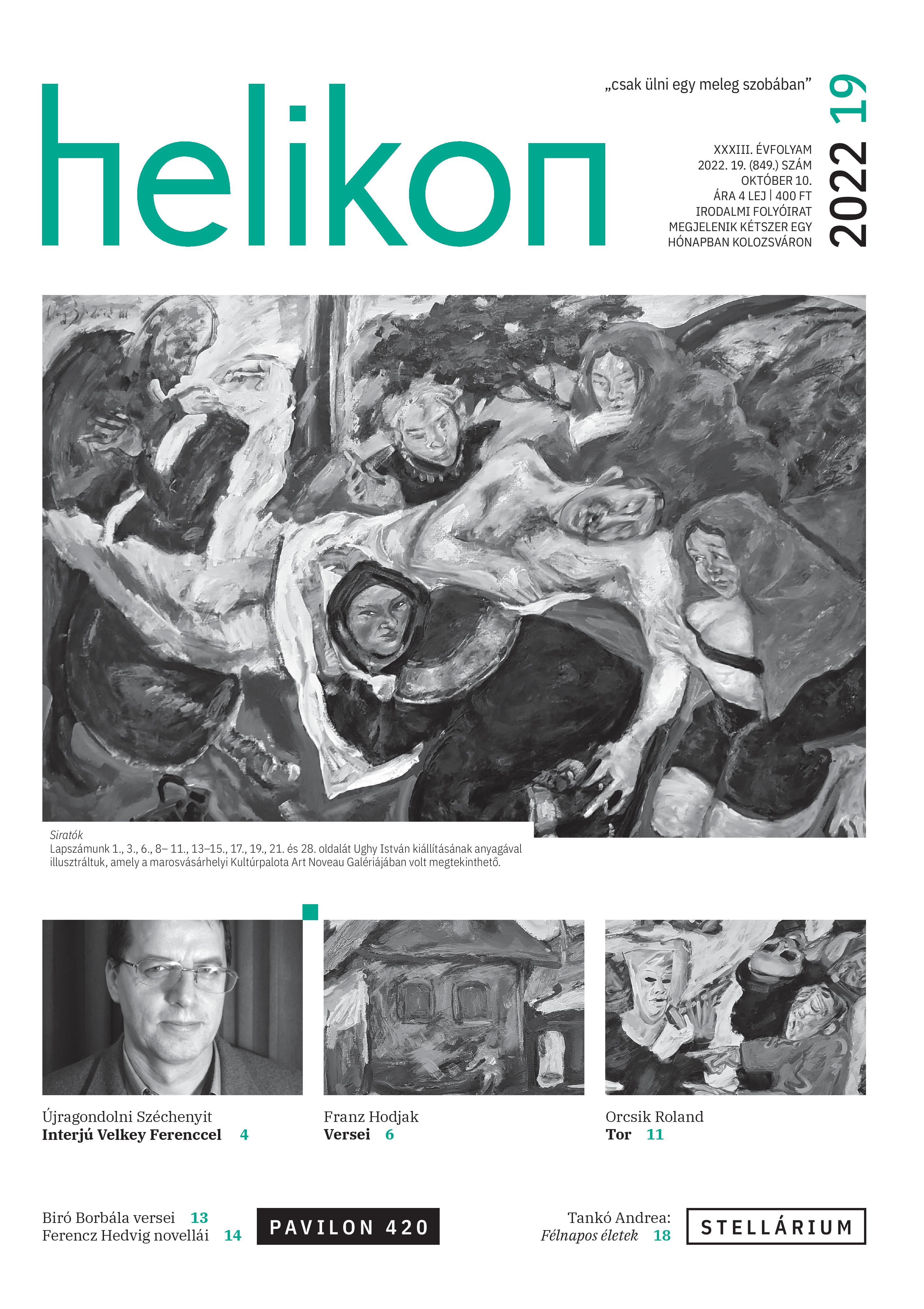
Poems by László Borsodi L. - "Landolás", "Átölel, befon", "Mint az árnyék", "Újrakezd".
More...
Interview with Historian, University Professor Ferenc Velkey.
More...
Poems by Borbála Biró - "azsúrzománc", "szovjet űrutazó", "a nyílt vidék madara".
More...
Poems by András László – Babiczky Tibor - "Ködben", "A félreértés", "Ködös kikötőben", "Dionüszosz és Minüasz leányai", "Félreértés", "Dionüszosz", "Trójai sírfelirat", "Gyász", "Gnóthi szeauton", "Gnóthi szeauton".
More...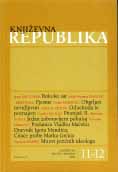
Ottó Tolnai nije nepoznat onome krugu hrvatskih čitatelja koji se još sjećaju iz onih, i ne tako davnih, jugoslavenskih vremena mađarske komponente u tom prostoru, tj. književnosti vojvođanskih Mađara. Otto Tolnai je možda najznačajniji predstavnik te male književnosti, danas već visoko cijenjen i u mađarskom književnom kontekstu, i jedan je od najznačajnijih suvremenih mađarskih književnika. Tolnai - osim jugoslavenskih datosti - imao je i svoje osobne, bliže veze sa Zagrebom, gdje je služio vojsku i započeo studij. Iako do fakultetske diplome nije stigao, godine provedene u Zagrebu, ovdašnja duhovna klima šezdesetih, Ervin Sinko i Krleža su ostavili traga ne samo na njemu, nego i, djelomice i njegovim posredstvom, u književnim kretanjima vojvođanskih Mađara. (A književna djela vojvođanskih Mađara i Tolnaijev legendarni časopis Uj Symposion, kao zabranjeno voće, bili su na visokoj cijeni i u tadašnjoj Mađarskoj. Zanimljiva bi tema bila za komparatiste opisati ulogu -vrijednosti, ali i nedostatke - te »međuknjiževnosti« u posredovanju između književnosti Južnih Slavena i Mađara.) Tako je prirodno i to da je Jadran postao jednim od glavnih motiva pjesništva Ottoa Tolnaija.
More...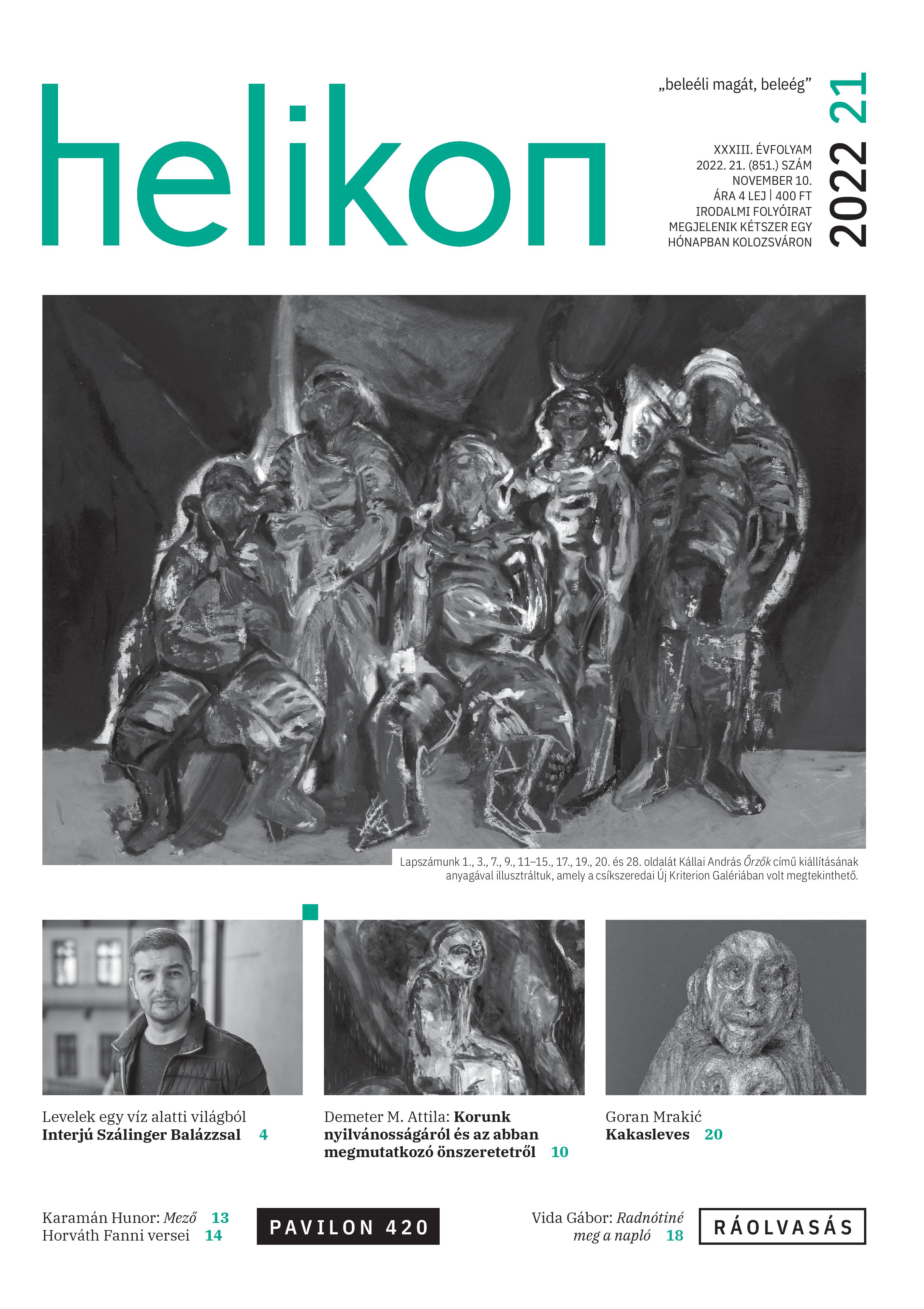

Review of: Radnóti Miklósné, Gyarmati Fanni, Napló 1935–1946 I–II. Jaffa Kiadó, 2018.
More...